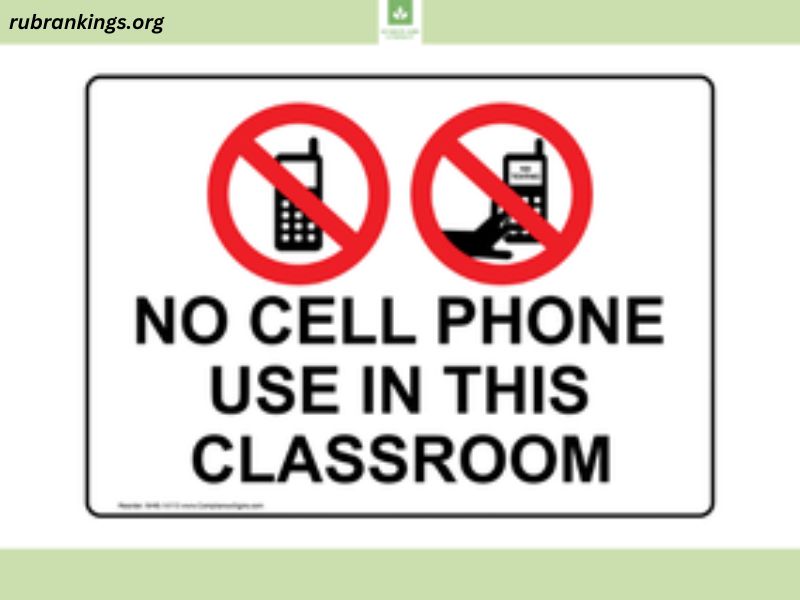The increasing use of Earn Privileges Student Cell Phones Handbook in schools has raised significant concerns among educators, parents, and administrators regarding the impact on students’ learning, social behavior, and overall academic performance. While cell phones offer many benefits, such as providing instant access to information, communication tools, and learning apps, their potential for misuse during class hours is undeniable. In response, many schools have implemented “Earn Privileges” policies that allow students to use cell phones under specific conditions, often linked to academic achievements, behavior, or meeting other school-related goals.
This article aims to explore the concept of the Earn Privileges Student Cell Phones Handbook, which serves as a guide for schools to manage cell phone usage in a balanced and responsible way, ensuring that students enjoy the benefits of mobile technology while maintaining an environment conducive to learning.
1. The Rising Role of Earn Privileges Student Cell Phones Handbook in Education
Over the last few decades, technology has revolutionized the education sector. Cell phones, once considered distractions, have become valuable learning tools, offering a range of benefits:
- Access to Information: With the internet at their fingertips, students can quickly find answers to questions, access educational apps, and conduct research on topics that are being discussed in class.
- Educational Apps and Tools: Many schools encourage the use of learning apps that can enhance students’ understanding of subjects like mathematics, languages, and science.
- Communication: Cell phones allow students to communicate with teachers, peers, and parents, making it easier for them to stay organized and informed about school events, assignments, and schedules.
Despite these advantages, there are drawbacks to unrestricted cell phone usage in classrooms. Distracted students, inappropriate content access, and the potential for cheating are some of the common concerns. Therefore, many schools have adopted policies to allow cell phone use in a controlled manner, ensuring that students’ academic progress and behavior are given priority.
2. What is the Earn Privileges Policy?
The Earn Privileges policy for cell phones is a structured system where students are granted access to their mobile devices as a reward for meeting certain academic, behavioral, or school-related criteria. The concept is rooted in positive reinforcement: students are encouraged to engage in responsible behavior, complete assignments on time, and demonstrate academic improvement in exchange for privileges such as cell phone use during specific times or under defined circumstances.
The aim of such policies is to create an environment where cell phones are not used as distractions but as valuable tools to support the learning process. Under this system, students who demonstrate responsibility are rewarded with the ability to use their phones in a way that benefits them.
3. Key Principles of the Earn Privileges Student Earn Privileges Student Cell Phones Handbook
The Earn Privileges Student Cell Phones Handbook outlines clear guidelines for students, teachers, and administrators regarding the responsible use of cell phones. Here are the core principles typically included in such a handbook:
a. Criteria for Earning Privileges
The Earn Privileges Student Cell Phones Handbook sets out specific conditions that students must meet to earn cell phone privileges. These conditions can include:
- Academic Achievement: Students may be required to maintain a certain GPA, complete assignments on time, or show improvement in specific subjects.
- Behavioral Standards: Students who display appropriate behavior, respect for teachers and peers, and adherence to school rules may be allowed to use their phones as a privilege.
- Attendance: Good attendance records may be part of the criteria for earning phone privileges, emphasizing the importance of regular class participation.
- Classroom Engagement: Students who actively participate in class discussions and contribute to the learning environment may be rewarded with cell phone access.
- Extra-Curricular Participation: Students who engage in school clubs, sports, or other extracurricular activities may be given additional chances to earn cell phone privileges.
b. Designated Times for Cell Phone Use
One of the key aspects of the Earn Privileges policy is that cell phone use is not unrestricted. Rather, students can only use their phones at designated times:
- During Breaks: Students who have earned the privilege may use their phones during scheduled breaks or lunch hours.
- In Specific Classes: Some schools allow cell phone use in certain subjects where it can enhance the learning experience (e.g., digital art classes, foreign language practice).
- Emergency Situations: In the case of a family emergency or urgent communication, students may be permitted to use their phones, even if they have not earned the privilege.
c. Usage Guidelines
The Earn Privileges Student Cell Phones Handbook provides detailed rules about how and when students can use their phones:
- No Use During Class: Unless explicitly authorized by the teacher, phones should remain off or in silent mode during class hours to prevent distractions.
- Appropriate Content: Students are prohibited from accessing inappropriate content or using their phones for non-educational purposes during school hours. Strict rules may be enforced regarding social media, games, and other non-academic activities.
- Respecting Privacy: Students are expected to respect the privacy of others when using their phones, avoiding taking photos or videos without consent.
- No Texting During Instruction: Sending text messages or making calls during instruction time is generally prohibited unless it is an emergency.
d. Consequences for Misuse
The Earn Privileges policy also outlines the consequences for students who misuse their cell phones. This ensures that the system remains fair and that students understand the importance of using their phones responsibly:
- Loss of Privileges: If a student misuses their phone, such as by texting during class, they may lose their privileges for a specified period.
- Warning System: Many schools implement a progressive discipline system where students receive warnings before more severe consequences are enforced.
- Detention or Other Penalties: In cases of repeated misuse, students may face detention or other disciplinary actions.
- Revocation of Privileges: In extreme cases, a student’s ability to earn cell phone privileges may be permanently revoked.
e. Role of Parents and Teachers
The policy emphasizes the partnership between parents, teachers, and students in ensuring the responsible use of cell phones. Teachers are encouraged to monitor students’ progress and behavior while offering incentives for those who meet the criteria. Meanwhile, parents may be asked to reinforce the importance of responsible cell phone use at home and stay informed about their child’s progress.
4. Benefits of the Earn Privileges Policy
The Earn Privileges policy has several benefits for students, educators, and parents:
a. Encourages Responsibility
By tying cell phone privileges to academic achievement and behavior, students learn to associate responsibility with rewards. This helps foster a sense of accountability and self-discipline.
b. Improves Academic Performance
The policy motivates students to perform better academically, as the prospect of using their phones can be an enticing incentive. It encourages students to focus on their work and strive for success in order to earn the privilege of using their devices.
c. Promotes Positive Behavior
Students are encouraged to exhibit positive behavior, such as following rules, respecting teachers, and being courteous to peers. The Earn Privileges policy reinforces good conduct by rewarding responsible students with phone usage privileges.
d. Supports Social Development
When students earn privileges, they are also developing social skills by learning how to balance personal freedoms with responsibility. The policy teaches them how to make responsible decisions about when and how to use technology.
e. Balanced Cell Phone Usage
The policy ensures that cell phones are used in a balanced manner. Students are able to use their phones, but only in a way that does not interfere with their learning. This balance helps prevent the negative effects of excessive phone use while maintaining the benefits of technology in the classroom.
5. Challenges and Considerations
While the Earn Privileges Student Cell Phones Handbook offers many advantages, there are also challenges and considerations for schools to address:
a. Ensuring Fairness
It is essential that the criteria for earning cell phone privileges are clear, consistent, and fair to all students. This helps avoid perceptions of favoritism or bias and ensures that all students have an equal opportunity to earn privileges.
b. Monitoring Usage
Teachers and administrators must remain vigilant in monitoring cell phone usage to ensure that students are following the rules. This can be a challenge, especially in larger schools or classrooms with many students.
c. Addressing Potential Addictions
While cell phones can be helpful tools, they can also lead to addiction if students become overly reliant on them for entertainment or social interaction. Schools must educate students about the importance of balancing screen time with other activities.
Conclusion
The Earn Privileges Student Cell Phones Handbook represents a balanced approach to managing cell phone usage in schools. By rewarding students for their academic achievements, positive behavior, and overall responsibility, the policy encourages students to engage in responsible phone use while promoting a productive learning environment. When implemented effectively, it can help schools harness the benefits of mobile technology while minimizing distractions and promoting positive outcomes for all students.



